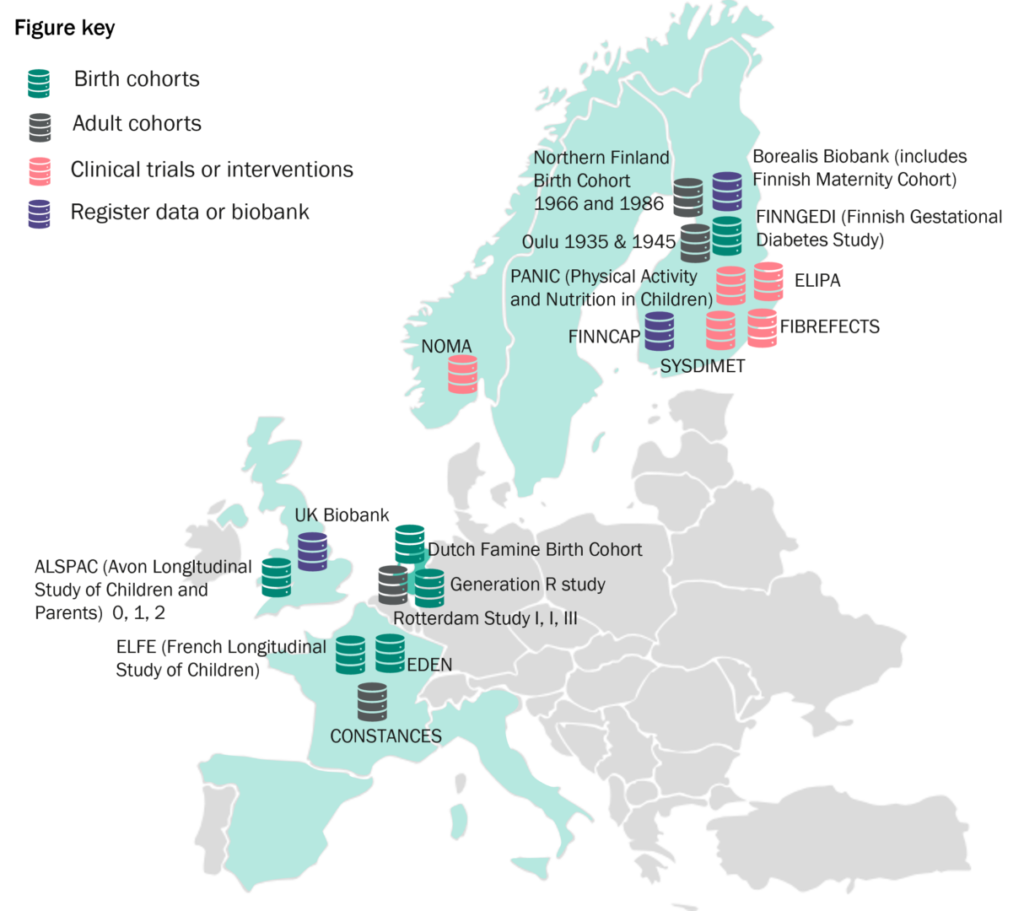How you are supporting one of the world’s largest research networks
Did you know that by participating in one of the studies shown below you are supporting wider research across Europe? Don’t worry, your local team ensures the use of your personal data in research strictly follows the relevant data protection regulations and is not being shared without your consent. This wider European research includes the LongITools project, which aims to help reduce people’s risk of having major diseases such as type 2 diabetes and heart disease.
This project is using encrypted data from around 11 million European participants in 24 different studies to understand how the environment and lifestyle that people are exposed to, combined with people’s biology and genetics, leads to the risk of certain diseases.
Studies involved in LongITools

Having access to so many studies, which collect similar information, improves the chance of researchers successfully identifying causes of disease and the time points in someone’s life when it may be best to act to prevent disease arising. Combining the studies data will ensure improved data reuse, provide researchers with better representative population samples, assist knowledge discovery, and improve research transparency.
What exactly is LongITools studying?
LongITools is studying the interactions between the environment, lifestyle and health in determining the risks of chronic cardiovascular and metabolic diseases such as obesity, type 2 diabetes, heart disease and atherosclerosis (clogged arteries). The LongITools team is studying and measuring how exposure to air and noise pollution and the built environment contribute to the risk of developing such diseases throughout a person’s life. The project is taking an exposome approach to determine the best points in life to intervene to reduce these risks.
What is the exposome?
The external exposome is the measure of all environmental exposures an individual has over their lifetime, starting from conception and pregnancy. Whether at work or during our leisure time, the environment around us is diverse. We may be exposed to pollution, chemicals, or infections, we may live in urban spaces or be surrounded by trees or water, and we eat a variety of food and drink every day. All of these ‘environmental’ exposures interact with each other and our bodies (our internal exposome).
The exposome approach to research is holistic, exploring multiple environmental factors affecting health. This moves away from studying using the more traditional ‘one exposure, one disease’ approach.
Watch our video to understand more about the exposome, what LongITools is studying and why.
Part of the largest network in the world
LongITools is part of the European Human Exposome Network, the world’s largest network of projects studying the impact of environmental exposures across a lifetime (the exposome) on human health. It brings together nine research projects, receiving over €100 million from Horizon 2020, the EU’s framework programme for research and innovation. The nine projects are ATHLETE, EPHOR, EQUAL-LIFE, EXIMIOUS, EXPANSE, HEDIMED, HEAP, LongITools, and REMEDIA.

Research on the exposome is key to understanding more about the causes of common diseases such as cardiovascular and metabolic diseases, respiratory diseases, disorders of the immune system and mental health disorders.
What is expected from the research?
The project hopes to provide new tools for researchers to use in the future, as well as scientific publications providing evidence which can be used by local, national and European policymakers to protect and improve people’s health and wellbeing.
We are always interested in talking with the communities our research may impact so please do contact us, and if you want to find out more please explore the LongITools website or follow @LongITools on Twitter.